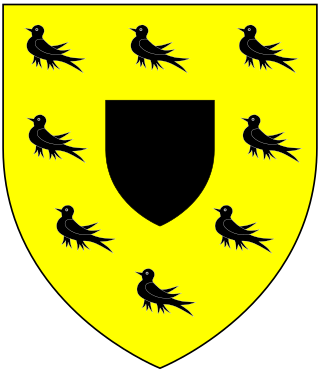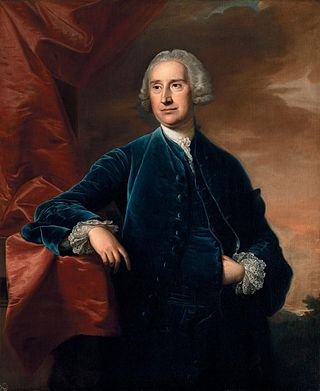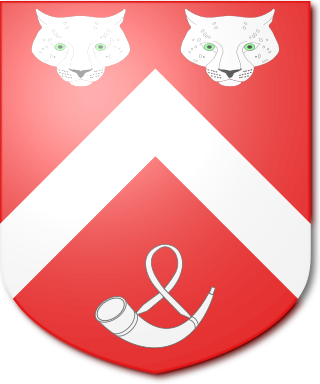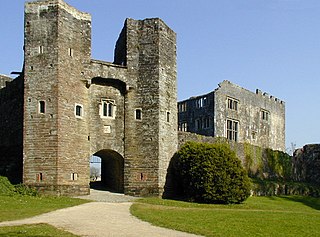
Arthur Chichester, 3rd Earl of Donegall was an Irish nobleman and soldier.
Sir William Lowther, 1st Baronet was an English landowner from Swillington, West Yorkshire, and a baronet in the Baronetage of Great Britain.

Sir Richard Warwick Bampfylde, 4th Baronet of Poltimore, North Molton, Warleigh, Tamerton Foliot and Copplestone in Devon and of Hardington in Somerset, England, was Member of Parliament for Exeter (1743–47) and for Devonshire (1747–76).

Sir William Brownlow, 1st Baronet of Humby in Lincolnshire, was an English politician and barrister.
Sir Anthony Thomas Abdy, 5th Baronet, KC was a British barrister and Whig politician.
Sir Matthew Blakiston, 1st Baronet was a British merchant, grocer and baronet.
Three baronetcies were created for persons with the surname D'Oyly, two in the Baronetage of England and one in the Baronetage of the United Kingdom. One creation is extant as of 2008.

Sir Frederick Acclom Milbank, 1st Baronet, was a British Liberal Member of Parliament.
The Baronetcy of Goodricke of Ribston was created in the Baronetage of England by King Charles I on 14 August 1641 for his loyal supporter John Goodricke of Ribston, Yorkshire. He represented Yorkshire in the Cavalier Parliament from 1661 to his death.
Sir William Maynard, 1st Baronet was an English politician and baronet.

Sir Robert Bacon, 3rd Baronet of Redgrave (1574–1655) was an English landowner.

Sir Edward Knatchbull, 7th Baronet was an Irish politician.
Sir Henry Beaumont, 2nd Baronet was an English politician.

Sir Edward Astley, 4th Baronet was a British politician who sat in the House of Commons from 1768 to 1790.

There have been four baronetcies created for members of the Slingsby family who settled at Scriven Hall, Scriven, Knaresborough, Yorkshire in the 14th century.
Sir Tristram Beresford, 3rd Baronet was an Anglo-Irish soldier, politician and baronet.

Sir Edward Seymour, 3rd Baronet of Berry Pomeroy Castle was an English politician who sat in the House of Commons at various times between 1640 and 1688. He fought for the Royalist cause in the English Civil War.
There have been two baronetcies- both extinct- granted to the Willises of Fen Ditton, both in the Baronetage of England.

John Seymour of Stapleford in Wilton, Wiltshire, and of Wulfhall in Savernake Forest, Wiltshire was an English landowner and Member of Parliament.
Sir John Wentworth, 1st Baronet, of Gosfield, Essex, was an English aristocrat.










